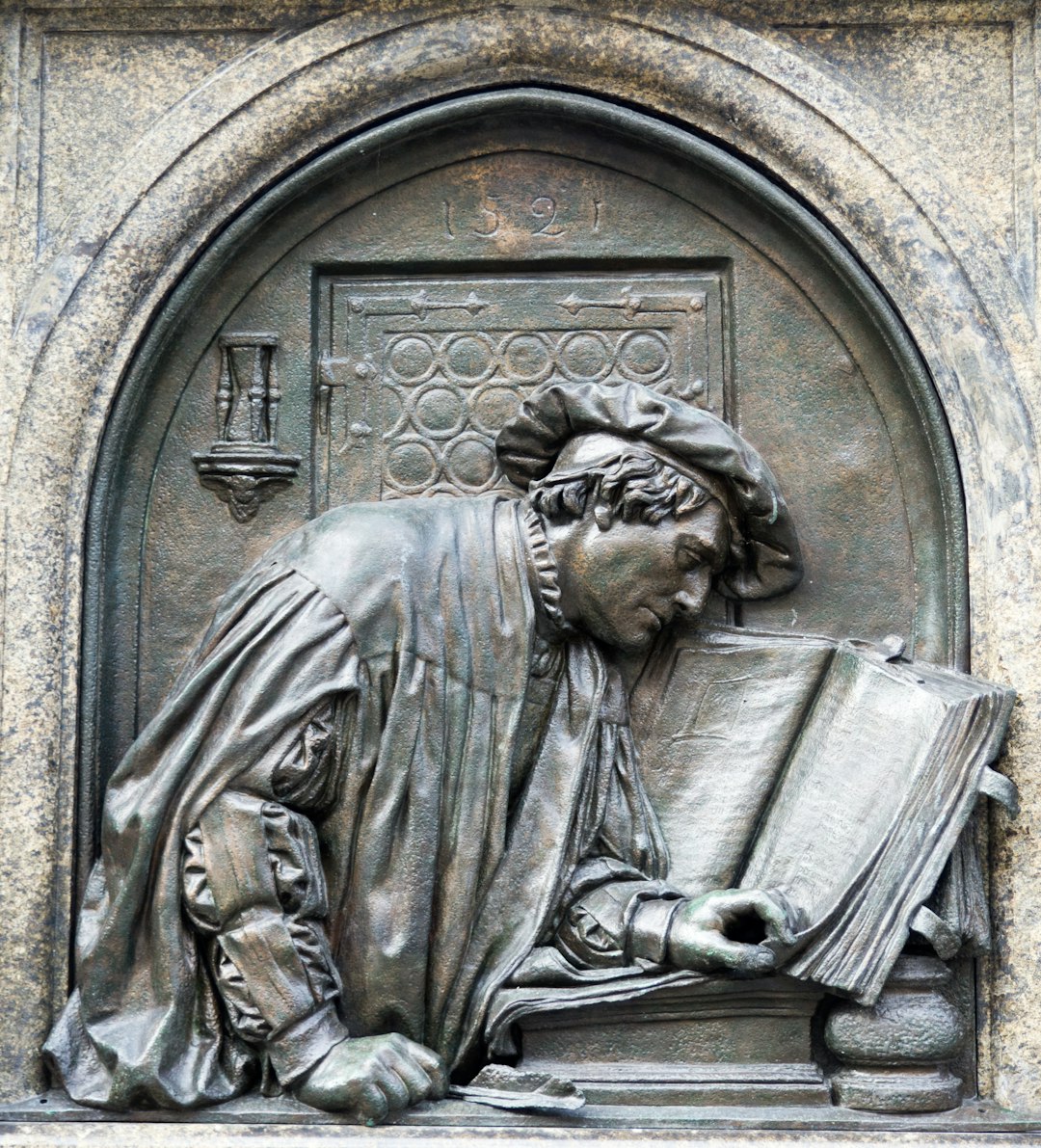Martin Luther, Pastoral Apologist
Martin Luther was many things: reformer, theologian, pastor, Bible scholar and translator, hymn writer. He was also an apologist, in the two best senses of the word: a defender of the faith, and defender of the sheep.
Photo by Wim van 't Einde on Unsplash
We see these apologetic aims intersect in theses 79-90 of his Disputation for Clarifying the Power of Indulgences, otherwise known as the Ninety-Five Theses. In this section of the Theses Luther introduces “truly sharp questions of the laity” regarding indulgences.1
These “sharp questions” were objections to indulgences that were already circulating prior to publishing the Theses. After reproducing these, Luther writes in Thesis 90:
“To suppress these very pointed arguments of the laity by force alone and not to resolve them by providing reasons is to expose the church and the pope to ridicule by their enemies and to make Christians miserable.”2
Apologetics is naturally understood as defending the faith, “providing reasons” to those outside, the “enemies” of the church. But resolving arguments through reason also defends Christians from misery. This is not your 21st century therapeutic cure for postmodern malaise. As Luther commented in his Explanations of the Ninety-five Theses, nothing less than people’s souls were at stake:
Therefore if those who hinder people from going to Rome sin so greatly, what about those who prevent them from going to heaven, not only by their contemptible doctrines but also by their most corrupt practices?3
Corruption among the clergy puts the sheep of God’s flock in danger. To call the sheep back to the fold, to protect them from wolves, God sent not only a reformer, but an apologist, one who would defend the faith once for all delivered to the saints. In so doing, Luther defended the sheep from false doctrine as well as corrupt clergy. The church is again in need of apologists who not only defend against outside attacks but also against internal dangers from wolves who eat rather than feed the sheep. This defense must address the abuse of pastoral power and the theological errors that both enable such abuses and defend them from accountability.
In a word, this defense is apologetics for the abused.
Quote from Os Guinness
Christian advocates then must be ready to focus their attention on those inside of church as well as those outside…There is no question that the inside task is far harder and more thankless for apologists than addressing the open enemies of the church. It requires a costly courage as well as faithfulness. Outside attacks often stiffen Christian responses, whereas inside revisionism saps the strength of believers through its many confusions, betrayals and the overall discouragement of opening ourselves to accusations of self-righteousness.4
Recommended Reading
Power, the Trinity, and Abuse: Notes on the Rise and Fall of Mars Hill, by Jared Michelson. Sometimes the resources I recommend in these posts are familiar to me and ready to hand, but occasionally I go looking for something new, and this week it really paid off. This article by Jared Michelson is commendable for so many reasons, but one I want to highlight is how he demonstrates that “ideas have legs,” both in the sense that ideas go somewhere (consequences) and come from somewhere (antecedents). I highly recommend this lengthy article not merely for what Michelson says, but as a model for how to analyze and address pastoral abuse theologically. This is pastoral theological theology (to modify John Webster’s phrase) at its best, and I can’t resist another long quote:
Might it be that the slide towards authoritarianism often begins, not with monsters bent on dominating others, but with good intentions gone wrong? Pastoral abuse often starts not with despicable tyrants but co-dependent people who think they can love like the trinity. What the doctrine of the trinity reminds us, is that while we must imitate God, it is just as important to refuse to do so, to be willing to accept failure, stagnation and imperfection, because this is what it means to be a creature. To be a creature is also to be one who never gives perfectly unilaterally. Only one love comes from a being with no needs. What we must recover then, is the conviction that to be a creature, is to live an indicative life; a life which says, ‘I can never give you what your heart desires, but I know who can.’
Question
Are you ready to be an apologist for the abused?
1 The Annotated Luther, Volume 1: The Roots of Reform, ed. Timothy Wengert (Minneapolis: Fortress Press, 2015), p. 44.
2 Ibid., p. 45.
3 Luther’s Works, 31:238.
4 Fools Talk: Recovering the Art of Christian Persuasion.
